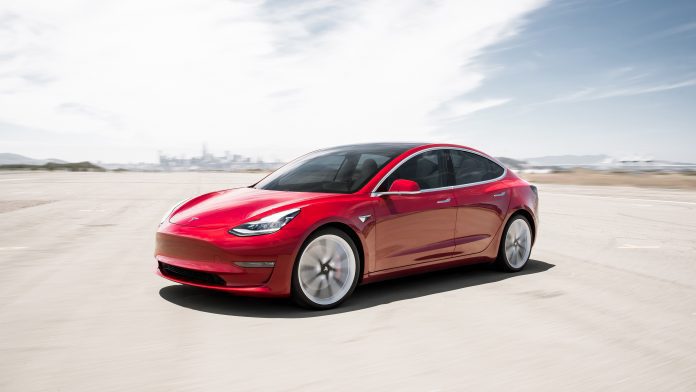Buyers of certain Tesla vehicles have reaped the benefits of the $7,500 EV tax credit since it launched January, but the company now expects the Model 3 will lose its qualifying status in the coming weeks.
According to a report by Electrek, Tesla employees have been warned that the base version of the Model 3 sedan will no longer qualify for EV tax credits after March. The vehicle is the cheapest in the brand’s lineup, and one of its longtime best-sellers.
The company is likely basing this prediction on upcoming revisions to the Biden Administration’s Inflation Reduction Act. The bill, which was intended to lessen American dependence on Chinese manufacturing, required vehicle components to be made domestically in order to qualify for EV tax credits. However, specific guidelines on batteries were delayed until the end of the first quarter, allowing automakers to qualify certain models even if they contained foreign-made parts. Tesla uses batteries built in China for the base version of its Model 3. While some time remains for customers to take advantage of the loophole, it is likely to close within the first few days of April.
However, upgraded versions of the car, in addition to other Tesla best-sellers, use domestically sourced components as required, meaning customers can continue earning EV tax credits on their Model 3 purchases. Since the incentives arrived, they have succeeded in bringing new buyers to the market, although adoption rates are still low. Given that the automaker has already discounted its vehicles twice in 2023, partly to accommodate pricing rules in the Inflation Reduction Act, there is a small chance the brand will eventually change its business partners in response to the new guidelines. For now, there is no indication that Tesla is planning to make more adjustments anytime soon.




